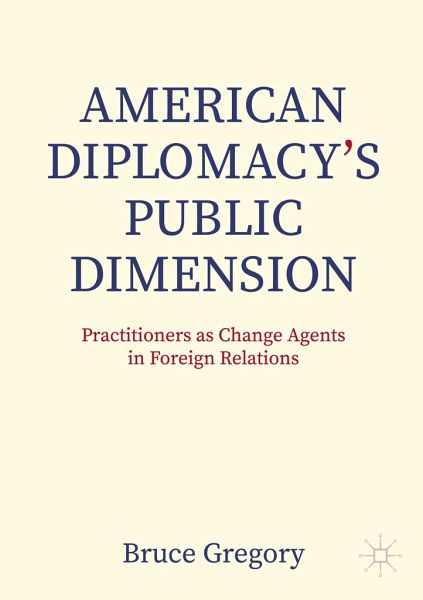
American Diplomacy's Public Dimension
Practitioners as Change Agents in Foreign Relations

PAYBACK Punkte
33 °P sammeln!
This is the first book to frame U.S. public diplomacy in the broad sweep of American diplomatic practice from the early colonial period to the present. It tells the story of how change agents in practitioner communities - foreign service officers, cultural diplomats, broadcasters, citizens, soldiers, covert operatives, democratizers, and presidential aides - revolutionized traditional government-to-government diplomacy and moved diplomacy with the public into the mainstream. This deeply researched study bridges practice and multi-disciplinary scholarship. It challenges the common narrative tha...
This is the first book to frame U.S. public diplomacy in the broad sweep of American diplomatic practice from the early colonial period to the present. It tells the story of how change agents in practitioner communities - foreign service officers, cultural diplomats, broadcasters, citizens, soldiers, covert operatives, democratizers, and presidential aides - revolutionized traditional government-to-government diplomacy and moved diplomacy with the public into the mainstream. This deeply researched study bridges practice and multi-disciplinary scholarship. It challenges the common narrative that U.S. public diplomacy is a Cold War creation that was folded into the State Department in 1999 and briefly found new life after 9/11. It documents historical turning points, analyzes evolving patterns of practice, and examines societal drivers of an American way of diplomacy: a preference for hard power over soft power, episodic commitment to public diplomacy correlated with war and ambition,an information-dominant communication style, and American exceptionalism. It is an account of American diplomacy's public dimension, the people who shaped it, and the socialization and digitalization that today extends diplomacy well beyond the confines of embassies and foreign ministries.












